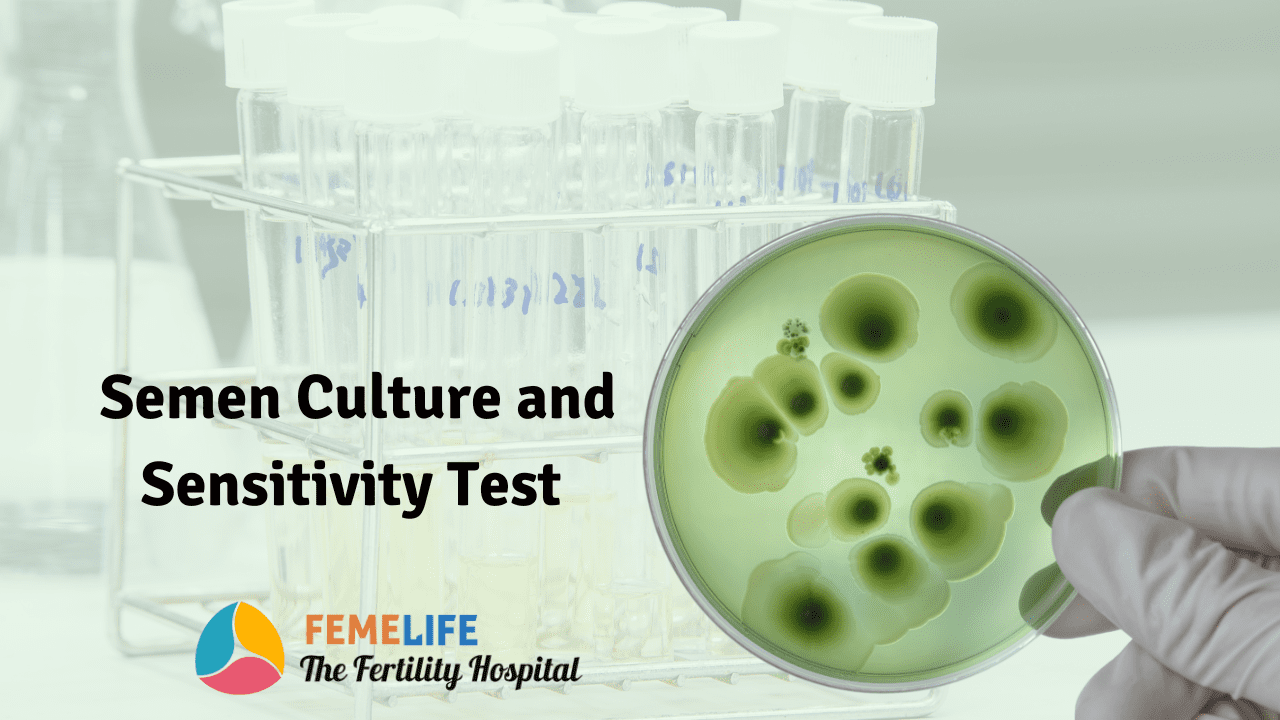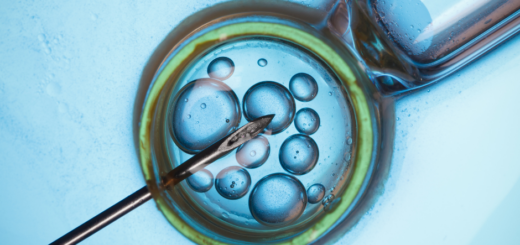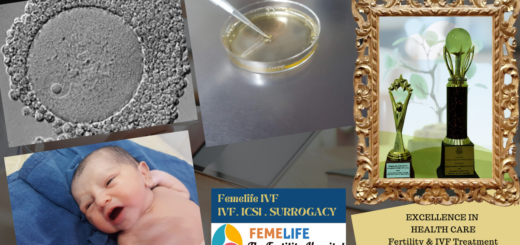Semen culture and sensitivity test

Infertility influences about 15% of couples looking for pregnancy. Approximately 50 % of those cases are because of the male partner. Microorganism in the semen is one of the causes of male infertility. Hence, semen culture is a part of male fertility investigations.
What is Semen Culture test?
Semen culture test is the laboratory test detects the presence of the microorganisms in the semen. This test requires examination of male semen sample in symptomatic conditions. When the semen sample consists of white blood cells in it, doctors advise the affected person to undergo this test. This additionally helps in identifying the specific microorganism and thereby finding the suitable antibiotic for treatment.
How does this test work?
The semen sample of the affected person is collected under sterile situations. This sample needs processing in the laboratory as quickly as possible. Then the semen sample is cultured by inoculating it in a growth media. This is to check for any microorganisms through , under laboratory situations. The micro organism present in the semen culture is identified from the growth pattern. Once the organism is recognized, an antibiotic sensitivity check is carried out. This test will assist the doctors understand the suitable antibiotic. Then the same antibiotic is prescribed by the doctor.
Who is this test for?
The semen culture test is for male patients who have certain health conditions as follows.
- Couples have trouble getting pregnant or be afflicted by some clinical symptoms concerning their genital area
- When the patient’s semen is found to have white blood cells in repeated semen analysis
- There may be a burning sensation or bloody discharge from the genital organ. For such conditions, the medical doctor advises the patient’s semen to be cultured and checked for the presence of microorganisms.
How should I collect the semen sample for a sperm culture?
- Maintain sexual abstinence for three to five days.
- Perform strict genital hygiene earlier than gathering the sample to avoid contamination.
- Collect semen in a sterile container.
Are there bacteria specific to the urogenital tract?
The male urogenital tract is colonized by some microorganisms. Sufferers with seminal alterations provide a different profile of microorganisms than those patients with normal seminal quality (normozoospermia). Also, there are microorganisms that provide a protective role in semen, inclusive of Lactobacillus, and others with a negative effect, inclusive of Prevotella. These microorganisms in semen can come from special locations:
- Urethra
- Prostate
- Epididymis
- Seminal vesicle
Benefits of the seminal culture test
This test is useful for couples undergoing treatment for infertility and also to have a test on the reproductive health of a male. A semen culture test is usually carried out before an In Vitro Fertilization (IVF) or an IntraUterine Insemination (IUI) procedure. Any pathogenic substances in the semen can be recognized by the use of this test and appropriate remedy given before doing the above clinical procedures.
Semen culture test allows identifying the causative agent (bacteria) or the microorganism that causes an infectious condition (pathogen) in the semen of a man. This test also can be used to check if the affected person has a Sexually Transmitted Disease (STD) and additionally in the diagnosis and remedy of any infection of the male reproductive gland.
Semen culture test report
This test reveals the pathogenic micro organism that is probably the reason behind the infection in the male reproductive organ. The test is in addition extended to test different antibiotics that are probably used to deal with the infection. So this test will assist the doctors diagnose and deal with the patient effectively.
Seminal infection can affect semen quality?
The presence of micro organism in semen may compromise sperm quality .The micro organism responsible for semen infection commonly originate from the urinary tract of patients. It may be transmitted by a associate through sexual intercourse. Detection of microorganisms in semen does not always suggest infection. Bacteria isolates in seminal fluid may also result from sample contamination or colonization of the urethral orifice.
Microorganisms can have an effect on the male reproductive function by:
- Causing agglutination of motile sperm
- Reducing the ability of acrosome reactions
- Making changes in cell morphology
- Production of reactive oxygen species generated by the inflammatory response to infection.
When is a semen culture indicated?
In the following circumstances:
- Presentation of urinary and/or genital tract symptoms.
- Painful ejaculation.
- Presence of blood in the semen.
- Presence of leukocytes in the semen (leucospermia) or significantly increased viscosity.
Very low semen quality provided that the physician reveals it appropriate.
In general, it is not really helpful to carry out a semen culture as a routine technique prior to assisted reproduction treatment or semen freezing.





















